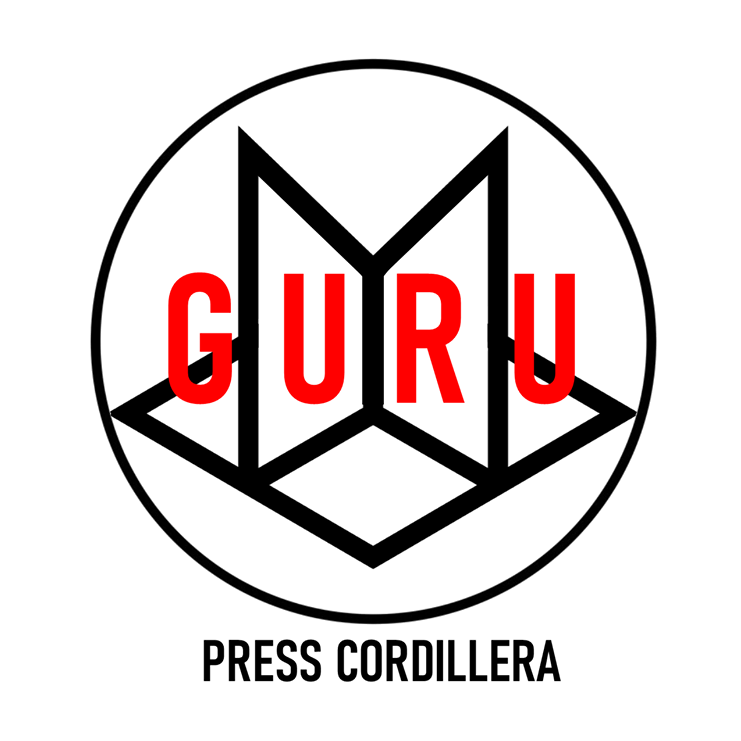‘We should professionalize (hiring and recruitment) ditoy ayan ti probinsya tapnu haan nga kanayon nga subject dagiti politician...’– Kalinga Gov. Edduba
Tabuk City, Kalinga – Underscoring the duty to serve responsibly, Provincial Governor James S. Edduba mentioned the need to professionalize hiring and recruitment processes in the province to ensure that positions are filled based on competence rather than political influence. “We should professionalize it also ditoy ayan ti probinsya tapnu haan nga kanayon nga subject dagiti politician—haan nga kanayon nga nu sinu dagidiay asideg ti dalikan nga kunkunada ket isu lang ti mapa

Lorraine Bacullo
15 hours ago2 min read
‘Nakakatuwa dahil it cuts the travel time. I congratulate the Public Works for their very good work’ - Marcos Jr. on P2B Camalaniugan-Aparri Bridge
Cagayan, Philippines – Aimed at connecting communities and shortening travel time, the long-awaited Camalaniugan–Aparri Bridge in Cagayan province was finally completed and inaugurated on Thursday, January 8, 2026, led by President Ferdinand “Bongbong” Marcos Jr. According to the Cagayan Public Information Office (CPIO), the Department of Public Works and Highways (DPWH) reported that construction of the Camalaniugan–Aparri Bridge began in May 2020, with total project costs e

Mark Moises Calayan
17 hours ago2 min read
Four nights, one big stage: Kalinga eyes Cup of Joe for concert series
Tabuk City, Kalinga – iKalinga music enthusiasts can look forward to a lively nightlife as the province gears up for a four-night concert series from February 11 to 14, 2026, featuring the province’s finest local talents. Popular Baguio-based boy band Cup of Joe may also join the lineup, adding an extra dose of excitement to the festival’s nightly performances. The concerts are part of the celebration of the 31st Kalinga Founding Anniversary and 7th Bodong Festival, which wil

Lorraine Bacullo
17 hours ago2 min read
Legal pride for Region 2: THREE land in Top 20 of 2025 Bar Exams
Cagayan, Philippines – Three new lawyers from the provinces of Cagayan and Isabela in Region II made it to the Top 20 of the 2025 Philippine Bar Examinations. Spinel Albert Allauigan Declaro and Alaiza Agatep Adviento, both graduates of the University of Santo Tomas (UST) in Manila, and Richmond Bulan Lucas, a graduate of the University of La Salette, Inc. (ULS), earned average grades of more than 90 percent, securing their spots on the roll of excellence. They were among

Menchie Kinao-Puerto
17 hours ago2 min read
‘Jejemon talaga ng Pinas. Ganda ganda ng Cordillera eh. Dami pwedeng gawin,’ – Actor John Manalo criticizes Glass Walkway in Benguet
La Trinidad, Benguet – Former child actor John Manalo sparked online debate after criticizing a proposed glass walkway in La Trinidad, Benguet, calling it an example of misplaced priorities despite the Cordillera region’s natural beauty. In a Facebook post shared by WOW – Cordillera, Manalo reacted to the planned glass-floored walkway, which features a transparent pathway supported by steel frames and large sculpted hands at the end of the structure intended to serve as a v

Lorraine Bacullo
17 hours ago3 min read
Animal Cruelty Arrest in Cauayan: 46-year-old nabbed after he shot and killed a dog with airgun
Cauayan, Isabela – A 46-year-old man in Cauayan City, Isabela, was arrested on Tuesday, nearly five months after he allegedly shot and killed a dog using an airgun. The suspect was identified as alias “Mundo,” a resident of Barangay Labinab, Cauayan. The arrest stemmed from an incident that transpired on August 13 last year. Reports stated that the owner of Argus, then a six-month-old aspin, saw the suspect in possession of an airgun or long firearm while having a drink

Menchie Kinao-Puerto
18 hours ago2 min read


Unconscious man found at Baguio City Market finally identified after MSWD–BGHMC asked public’s help
Baguio City, Philippines – The John Doe who was brought to the Baguio General Hospital and Medical Center (BGHMC) after being found unconscious at the city market has been identified by his family. The patient was reportedly seen by a bystander at around 10:20 p.m. on Tuesday, Jan. 6, at Block 4 of the public market. Concerned, the bystander alerted Police Station 7, which promptly coordinated with the Emergency Medical Service (EMS). The man was then transported to the hospi

Menchie Kinao-Puerto
3 days ago1 min read


Kalinga Provincial Hospital renews MOA with partner private hospitals; more patients to benefit - OIC-Chief of Hospital Dr. Rey Aranca
Tabuk City, Kalinga – The partnership between private health institutions and the Kalinga Provincial Hospital (KPH), the province’s primary public healthcare provider, will continue in 2026 to augment and supplement services that KPH cannot provide to its patients. OIC – Chief of Hospital, Dr. Rey Aranca, recently announced that Governor James Edduba renewed the Memorandum of Agreement (MOA) between KPH and its partner private hospitals and clinics in Kalinga for 2026. These

Leonora Lo-oy
3 days ago2 min read


Tabuk Chief of Police relieved from post over escape of 2 detainees
Tabuk City, Kalinga – Kalinga Police Deputy Provincial Director for Operations, PLtCol. Domingo Gambican, now serves as the Officer-in-Charge (OIC) of the Tabuk City Police Station following the administrative relief of PLtCol. Jack Angog over the escape of two detainees on January 2. Kalinga Police Director, PCol. Gilbert Fati-ig, confirmed that Angog, the Tabuk City Chief of Police at the time of the incident, was relieved from his post to ensure impartiality while the inve

Leonora Lo-oy
3 days ago2 min read


SLU named 4th top-performing law school in 2025 Bar exams
Baguio City, Philippines – Law graduates from Saint Louis University (SLU) delivered the fourth highest passing percentage in the 2025 Bar Examinations, according to results released by the Supreme Court on January 7. The Saint Louis University School of Law (SOL) earned an 83.33% passing rate in one of the country’s toughest exams, placing the university at number 4 in the 11–50 examinees category. This performance maintained SLU’s standing from the 2024 Bar Examination, whe

Leonora Lo-oy
3 days ago1 min read


Cordillera teachers celebrate: Over 8,000 get promoted through Expanded Career Progression
Tabuk City, Kalinga – More than 8,000 public school teachers from the Cordillera Administrative Region (CAR) became the first beneficiaries of the Expanded Career Progression (ECP), marking a milestone in the implementation of a long-awaited reform that institutionalizes clearer career advancement and improved compensation for educators. The ECP, according to the Department of Education (DepEd), bridges gaps in the old system by introducing new position titles, including Teac

Lorraine Bacullo
3 days ago2 min read


Pick-up Truck plows into seven parked tricycles in Gattaran, Cagayan; two injured
Gattaran, Cagayan – Seven parked passenger tricycles were heavily damaged, and two tricycle drivers were injured after a pick-up truck crashed into them in Barangay Guising on January 6, 2026. This is the first reported vehicular traffic accident in town this year that involved multiple vehicles. According to a report from the Municipal Disaster Risk Reduction and Management Office (MDRRMO) Gattaran, the incident occurred in front of Don Mariano Marcos National High School i
Mark Jordan Bomogao
3 days ago1 min read


“The Wedding Dance” lead actor from Tabuk is among 44 new iKalinga lawyers
Tabuk City, Kalinga – People may take different paths through life, but somehow, they all come to a crossroad. This is the story of Cordilleran actor Arvin Tianga Balageo, who simultaneously pursued law school and successfully passed the 2025 Philippine Bar Examinations, along with 43 other fellow iKalingas. According to the Supreme Court, a total of 11,420 examinees nationwide took the Bar examinations on September 7, 10, and 14, 2025. Based on the results released by the Co

Mark Moises Calayan
3 days ago2 min read


“Protect the Bridge for the Next 50 Years”: OPE-Kalinga urges Balbalan residents to care for P85M Poswoy Bridge
Balbalan, Kalinga – As the Poswoy Bridge in Barangay Poswoy, Balbalan, Kalinga nears completion, officials from the Office of the Provincial Engineer (OPE-Kalinga) urged the public to help take care of the structure to ensure its safety and long-term use. The 45-meter bridge project, which has an expected lifespan of 50 years, is now 90 percent complete as of January 7, 2026. Construction of the bridge began in 2024. This was confirmed by OPE-Kalinga Engineer IV Froilan Eugen

Mark Moises Calayan
3 days ago2 min read


Mt. Province records zero fireworks injuries; Kalinga logs highest number in Cordillera
Baguio City, Philippines – Residents of Mountain Province kept the holiday celebrations safe with injury-free nights of fireworks, while the province of Kalinga recorded the highest number of firecracker-related injuries in the Cordillera region. Firework-related injuries in the region reached 46 cases during the monitoring period from December 21 to January 6, according to the latest holiday summary report of the Department of Health–Cordillera (DOH-Cordillera). The regional

Menchie Kinao-Puerto
3 days ago2 min read

.png)



































































Comments